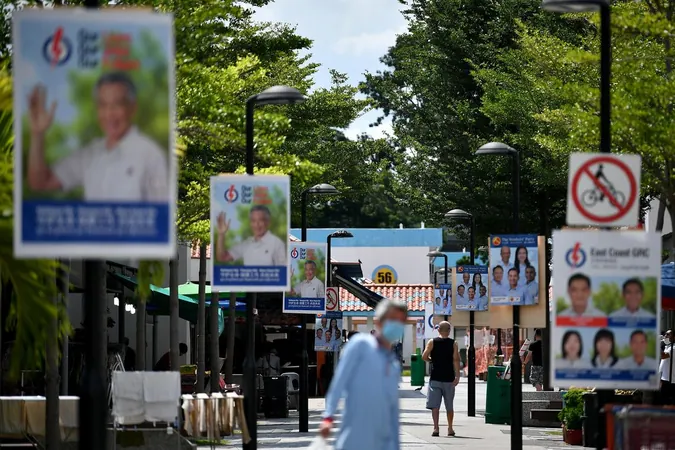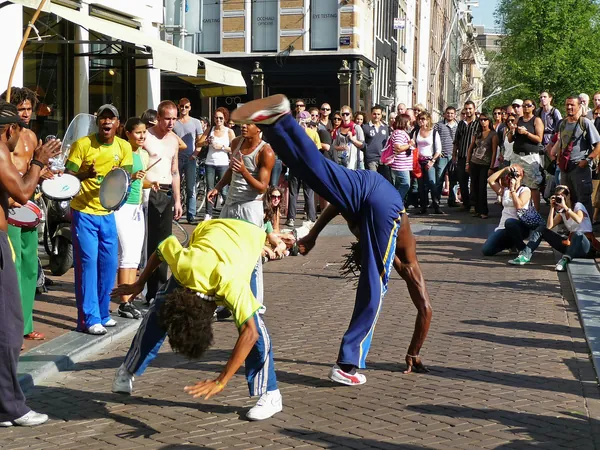
GE2025: Singapore and Tech Giants Unite to Combat Cyber Threats Before the General Election
2025-03-28
Author: Mei
Overview
As Singapore prepares for the upcoming 2025 General Election, the looming threat of cyber interference—whether subtle or glaring—is back in the spotlight. Political parties are acutely aware of the potential digital risks and are enhancing their data security measures and digital infrastructure to safeguard against potential breaches. Meanwhile, major tech platforms are ramping up their strategies to combat misinformation and manipulated content, all while the government emphasizes its commitment to fight electoral misinformation.
Expert Insights on Cyber Threats
Experts believe that the upcoming election will be a critical trial not only for Singapore’s ability to fend off cyber threats but also for protecting the political landscape from foreign influence and divisive narratives. As political campaigning increasingly shifts to digital platforms, new avenues for cyber vulnerabilities arise. James Cook, Asia-Pacific group vice-president of DigiCert, pointed out the pressing nature of these risks as elections become even more entwined with social media campaigns.
Eugene Tan, an associate research fellow at the S. Rajaratnam School of International Studies (RSIS), warns that politicians find themselves particularly susceptible during election seasons, especially in the face of disruptive narratives or attacks. He highlighted the persistent threat from state-sponsored groups, which view the election period as an opportune moment to instigate chaos, particularly because of Singapore's brief nine-day electoral campaign timeline that limits the window for investigation into cyber occurrences.
International Comparisons and Local Context
The scenarios presented by Tan echo incidents seen in other nations, where state actors exert effort to manipulate election outcomes in favor of candidates aligning with their interests. Recent elections in the U.S. and Romania have underscored the serious implications of foreign-driven misinformation campaigns on democratic processes. In Singapore, during the 2023 Presidential Election, racially charged posts circulated on Chinese social media platforms, proclaiming divisive narratives that suggested Singapore should be governed solely by Chinese leaders. While authorities dismissed any significant coordinated attempts behind these incidents, concerns remain about the potential for disruption and social disorder.
Government Actions and Legislative Framework
The Ministry of Home Affairs (MHA) underscored its resolve to confront and counteract any foreign interference, exemplified by their actions in October 2024 when they blocked ten websites suspected of facilitating hostile information campaigns. At this pivotal time, Sean Tan from RSIS expressed that foreign interference is compounded by the rise of generative artificial intelligence (AI), which fuels disinformation efforts.
To tackle these threats, Singapore has enacted the Foreign Interference (Countermeasures) Act, empowering the government to act against disruptive foreign entities, including social media companies that manipulate algorithms for electoral influence. This legislation, active since December 2023, also allows authorities to compel disclosure of information to investigate potential information campaigns from foreign sources.
In addition, the Protection from Online Falsehoods and Manipulation Act (Pofma) serves to counter misinformation that jeopardizes public interest, enabling the State to issue correction notices or block harmful content. This proactive approach is bolstered by new legislation—the Elections (Integrity of Online Advertising) (Amendment) Act—introduced to address the challenges posed by deepfakes and misleading representations of candidates.
Role of Tech Giants and Political Parties
As part of ongoing efforts, tech giants like Meta and Google are implementing stringent measures to ensure electoral integrity. Meta collaborates with fact-checkers and intensifies scrutiny over electoral advertisements, while Google utilizes advanced technologies to enhance content transparency and traceability throughout its platforms. TikTok promotes reliability by removing false election information and ensuring that political advertising is prohibited.
Political parties are also increasing their defenses against potential online attacks. The People’s Action Party (PAP) and the Progress Singapore Party (PSP) have acknowledged growing concerns regarding misinformation and have adopted measures like two-factor authentication and encrypted messaging to bolster their communications security.
A Collective Effort for Digital Literacy
As experts, tech platforms, and political factions converge on strategies to mitigate digital threats, one consensus remains: enhancing digital literacy is vital. Regular cybersecurity training for campaign staff can significantly elevate defenses against disinformation tactics. The MHA plans to disseminate advisories regarding the risks of foreign interference as Singaporeans gear up for the 2025 elections.
The public plays an essential role in these defense efforts; an informed and vigilant electorate is crucial in recognizing and disregarding misinformation. As Singapore approaches this important democratic milestone, the collaboration between political entities, tech platforms, and the government indicates a strategic front against evolving cyber threats.
Conclusion
Will these measures be enough to protect Singapore's sovereignty and electoral integrity? The nation watches closely as the countdown to GE2025 begins.


 Brasil (PT)
Brasil (PT)
 Canada (EN)
Canada (EN)
 Chile (ES)
Chile (ES)
 Česko (CS)
Česko (CS)
 대한민국 (KO)
대한민국 (KO)
 España (ES)
España (ES)
 France (FR)
France (FR)
 Hong Kong (EN)
Hong Kong (EN)
 Italia (IT)
Italia (IT)
 日本 (JA)
日本 (JA)
 Magyarország (HU)
Magyarország (HU)
 Norge (NO)
Norge (NO)
 Polska (PL)
Polska (PL)
 Schweiz (DE)
Schweiz (DE)
 Singapore (EN)
Singapore (EN)
 Sverige (SV)
Sverige (SV)
 Suomi (FI)
Suomi (FI)
 Türkiye (TR)
Türkiye (TR)
 الإمارات العربية المتحدة (AR)
الإمارات العربية المتحدة (AR)